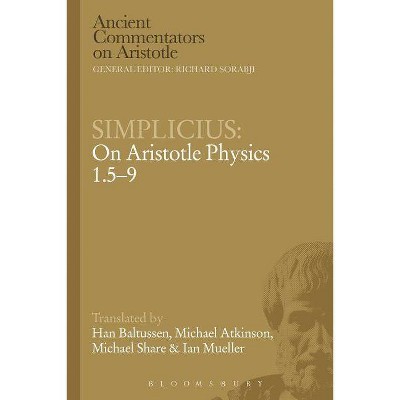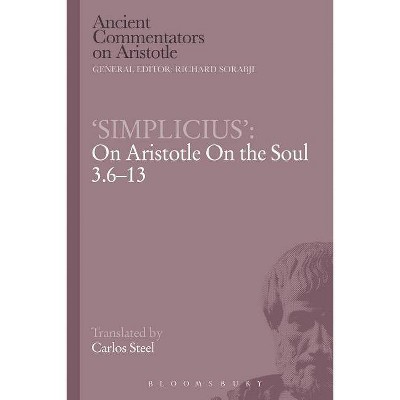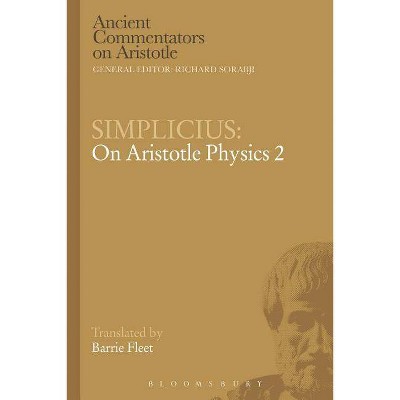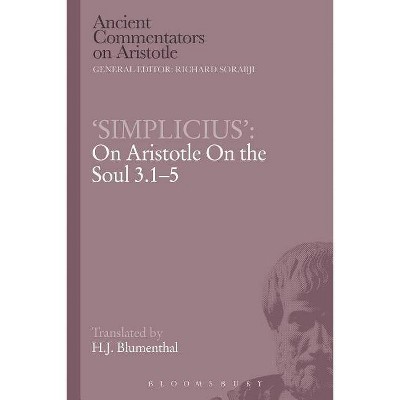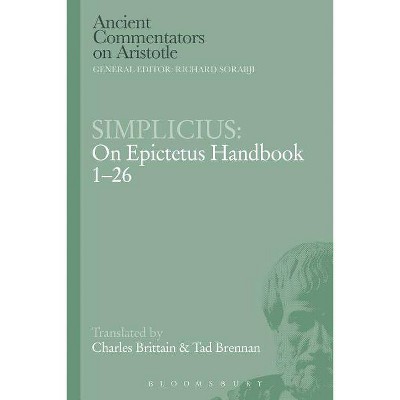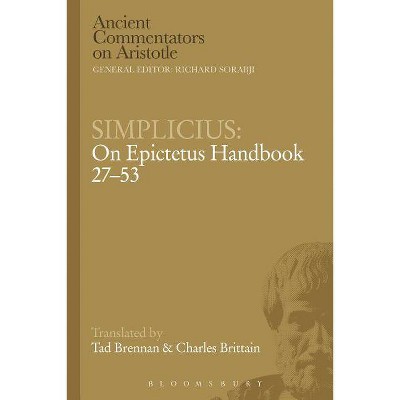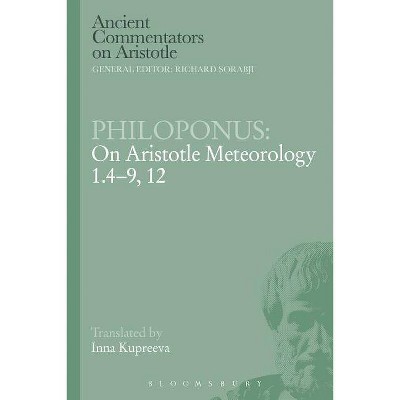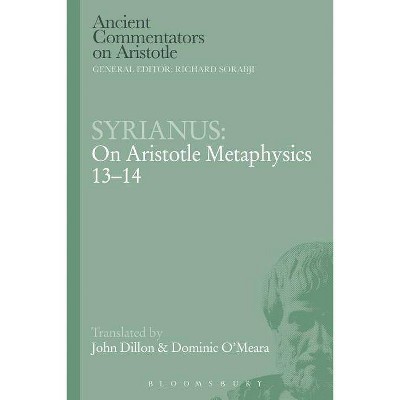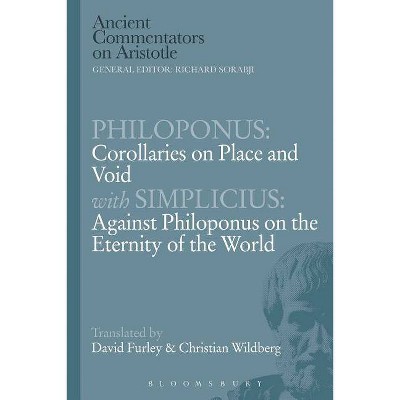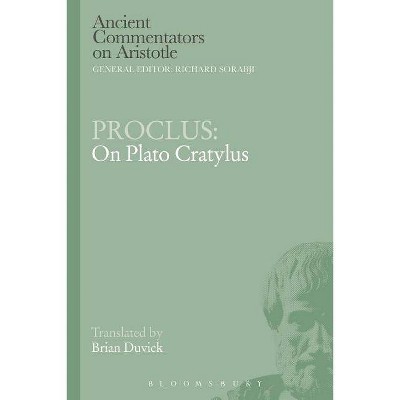Simplicius - (Ancient Commentators on Aristotle) (Paperback)
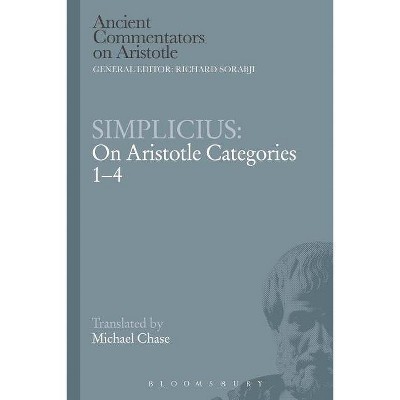
Similar Products
Products of same category from the store
AllProduct info
<p/><br></br><p><b> About the Book </b></p></br></br><p>In his Categories, Aristotle divides what exists in the sensible world into ten categories. This text provides a translation of Simplicius' commentary on Categories and represents over 600 years of criticism.</p><p/><br></br><p><b> Book Synopsis </b></p></br></br>Simplicius' commentary on Aristotle's<i> Categories</i> is the most comprehensive philosophical critique of the work ever written, representing 600 years of criticism. In his<i> Categories</i>, Aristotle divides what exists in the sensible world into ten categories of Substance, Quantity, Relative, Quality and so on. Simplicius starts with a survey of previous commentators, and an introductory set of questions about Aristotle's philosophy and about the <i>Categories</i> in particular. The commentator, he says, needs to present Plato and Aristotle as in harmony on most things. Why are precisely ten categories named, given that Plato did with fewer distinctions? We have a survey of views on this. And where in the scheme of categories would one fit a quality that defines a substance - under substance or under quality? In his own commentary, Porphyry suggested classifying a defining quality as something distinct, a substantial quality, but others objected that this would constitute an eleventh. The most persistent question dealt with here is whether the categories classify words, concepts, or things.<p/><br></br><p><b> About the Author </b></p></br></br><p><b>Dr Michael Chase</b> is Assistant Editor at L'Annee Philologique and Research Engineer at the National Centre of Scientific Research, Paris, France.</p>
Price History
Price Archive shows prices from various stores, lets you see history and find the cheapest. There is no actual sale on the website. For all support, inquiry and suggestion messagescommunication@pricearchive.us
